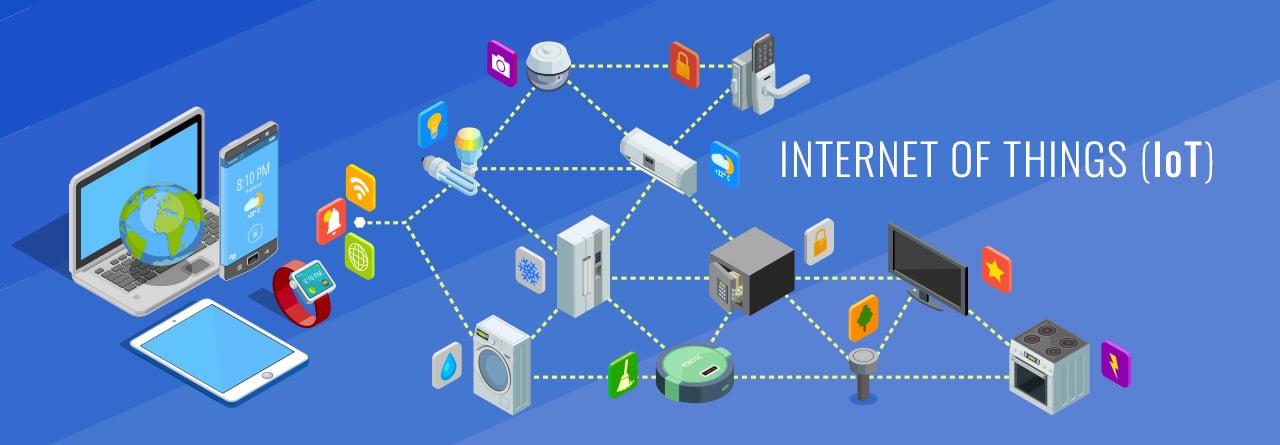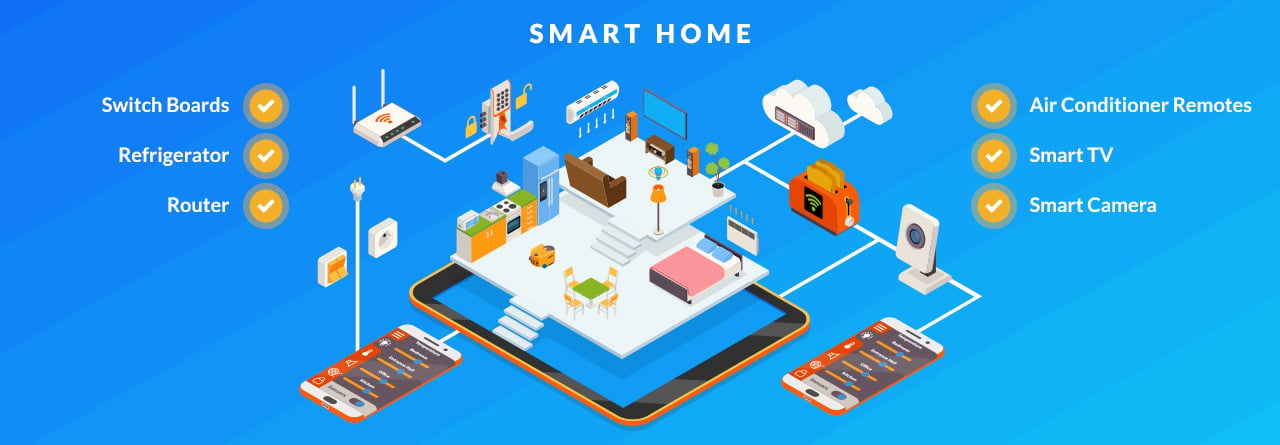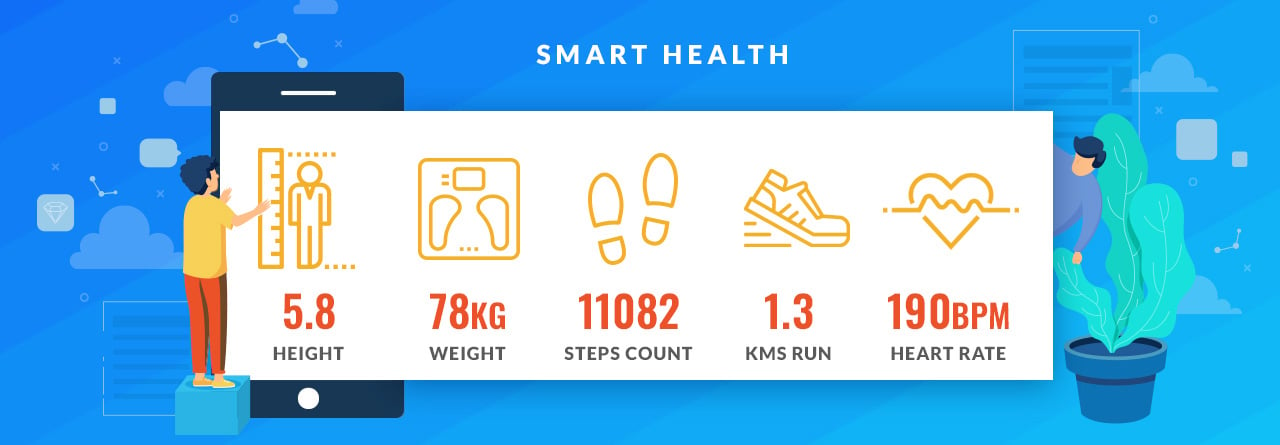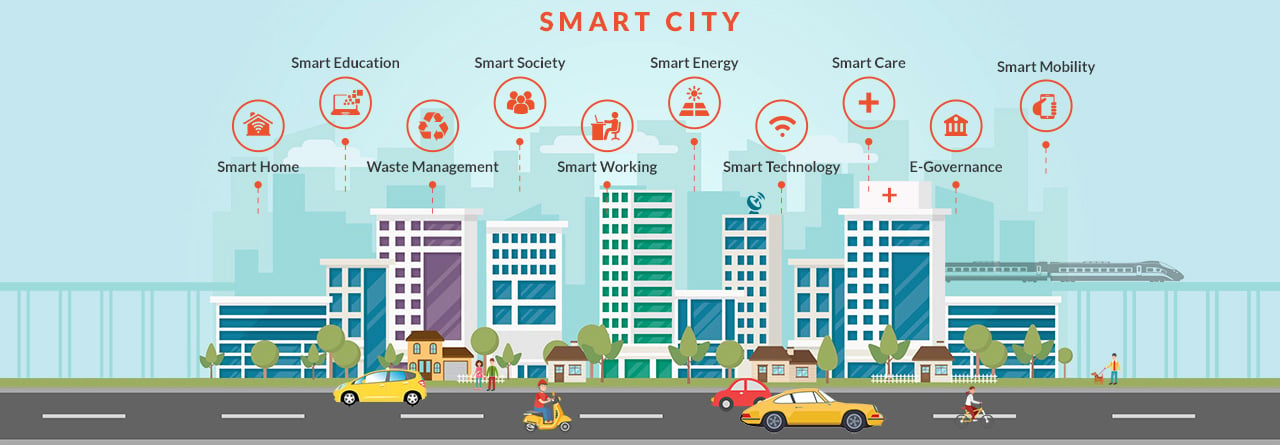Nowadays, we are listening the word IoT in technical industry quite often and it has become a revolution in technology. IoT in manufacturing could generate a lot of business value that will eventually lead to Fourth Industrial revolution that is also known as Industry 4.0.
What is IoT?
Internet of Things (IoT) is a system that communicates between different devices connected to the Internet. It works simply on three words collect, send and act on data. The ‘thing’ in IoT could be a person with a heart monitor or an automobile with built-in-sensors, i.e. objects that have been assigned an IP address and have the ability to collect and send data over a network. The embedded technology in the objects helps them to interact with internal states or the external environment, which, in turn, has a bearing on the decisions that will be taken.

Internet connected things can be placed under three categories and they are as follows:
- Objects that Collect Information and Send It
Here, the objects are sensors. Sensors could be temperature sensors, motion sensors, moisture sensors, air quality sensors, or light sensors. These sensors, along with a connection, allow us to automatically collect information from the environment, which, in turn, let us make more intelligent decisions. For example, soil moisture sensor, on the farm, automatically collects the information about moisture in the soil and can tell farmers the time when their crops need to be watered. - Objects that Receive Information and Act On It
We witness these kinds of objects in our daily routine. Machines getting information and acting on them. For example, a printer receives documents and prints it. Car remote receives signals from key and opens the door. - Objects that Do Both
The real power of IoT comes into the picture when things can do both of the above. Things that not only collect information and send it, but also receive information and act on it. The sensors can collect information about the soil moisture and tell the farmer how much to water the crops, but one doesn’t actually need the farmer. Instead, the irrigation system can automatically turn on as needed, based on the quantity of moisture in the soil.
Benefits of IoT
The IoT offers a number of benefits to organizations, enabling them to:
- Monitor their overall business processes
- Improve customer’s experience
- Save time and money
- Enhance employee productivity
- Integrate and adapt business models
- Make better business decisions
- Generate more revenue
IoT encourages companies to rethink the ways of approach in their businesses, and gives them the tools to improve their marketing strategies.
Scope of IoT in Mobile Apps
Mobiles have become an integral part of our life. The advent of Smartphones and the ever increasing internet speeds have brought drastic changes in our lifestyle. Nowadays, mobile apps allow us to do a lot using just our fingertips.
IoT brings scope for new apps which make user’s life easier by communicating with multiple devices that are connected to the internet.
Based on three simple C's entire IoT evolves around the following:
- Connect: Connecting to smart devices
- Communicate: Communicate with those device
- Collect/Act/Cloud: Collect data from those devices and act upon it & store information on cloud
Using these 3C's concept, wide range of mobile apps can be developed by focusing on these modules such as:
- Connect: Mobile apps can connect to different smart devices through Bluetooth, Wi-Fi, 6LoWPAN, RFID, NFC & network protocols (Zigbee), etc. If Industry focuses on such modules, connectivity will become simple & we can do many enhancements to it.
- Communicate: Mobile has multiple ways to communicate with IoT devices like sensors, actuators, etc. Apps can receive input from users through gesture recognizers, cameras (scanning bar codes, QR codes and face scanning), voice & communicate to IoT devices through connected medium.
- Collect/Act/Cloud: Collecting information from connected devices, analyzing that data & acting upon it. After successful operation, the information is stored on cloud. For example, smart lock (when user try to unlock, it collects information of user input and verifies data to act upon to know whether it's correct or not to unlock the device, and stores transaction information on cloud).
IoT has big scope of applications development in different areas like:
- Consumer Applications: Many IoT devices are created for consumer’s use including connected vehicles, home automation, wearable devices and appliances with remote monitoring capabilities.

- Smart Home: It is equipped with smart thermostats, smart appliances and connected heating, lighting and electronic devices controlled remotely via apps. For example, mobile app to turn on/off lights in living area or controlling temperature in refrigerator, changing channels on television, etc.
- Smart User: Wearable devices with sensors and software can collect and analyze user data and send messages to other technologies about the user, with the aim of making user's lives easier and comfortable. For example, mobile app that shows user's biodata & history of various elements like traveling, finance, and medical history among others collected from wearable devices (smart watches) or cloud storage.
- Commercial Applications

- Smart Health: IoT offers many benefits including ability to monitor patients more closely by analyzing the data generated. It is used for inventory management for both pharmaceuticals and medical instruments. For example, mobile app that can communicate & display results of health monitoring devices can range from simple blood pressure and heart rate monitors to advanced devices capable of monitoring specialized implants, such as pacemakers, Fitbit electronic wristbands, or advanced hearing aids and these devices are already present in the market.
- Industrial Applications

- Smart City: IoT sensors and deployments such as smart street lights and smart meters can help alleviate traffic, conserve energy, monitor and address environmental concerns, and improve sanitation. For example, mobile apps for smart Wi-Fi, smart safety & security, smart lighting, smart parking, smart transports, and smart bus stops.
- Smart Farming: IoT based smart farming systems can help monitor light, temperature, humidity & soil moisture of crop fields using connected sensors. Microsoft is on the verge of creating fish farming tools using the Microsoft Azure application suite for IoT technologies related to water management. For example, mobile apps help farmers monitor soil temperature and moisture from afar, and even apply IoT-acquired data to precision fertilization programs.
- Smart Manufacturing: IoT intelligent systems enable rapid manufacturing of new products, dynamic response to product demands, and real-time optimization of manufacturing production and supply chain networks by sensors and control system. For example, mobile apps help users & manufacturing industries even in the case of a flat tyre. Suppose a user's car tyre get punctured. With the help of car control systems, it can send signal to car/tyre manufacture and ask for assistance. Manufacturer can send assistance & help with suggestions like service center location, and nearby showrooms, etc.
Conclusion
In an IoT enabled ecosystem, the mobile devices app will play a stellar role in the future as it will act as the main interface through which our IoT enabled devices can be interacted with. With coming of age in the field of technology, IoT is fast becoming the spinal cord of technology as our mobile devices come loaded with features like geo-location based technology, voice & face recognition, fingerprint scanning, WiFi and Bluetooth. These qualities that are embedded in our mobile phones makes them to be at the core of the IoT environment.
About Innominds
Innominds is a leading Digital Transformation and Product Engineering company headquartered in San Jose, CA. It offers co-creation services to enterprises for building solutions utilizing digital technologies focused on Devices, Apps, and Analytics. Innominds builds better outcomes securely for its clients through reliable advanced technologies like IoT, Blockchain, Big Data, Artificial Intelligence, DevOps and Enterprise Mobility among others. From idea to commercialization, we strive to build convergent solutions that help our clients grow their business and realize their market vision.
Interested! For any demos or project discussions, please write to us at marketing@innominds.com and know more about our offerings.




